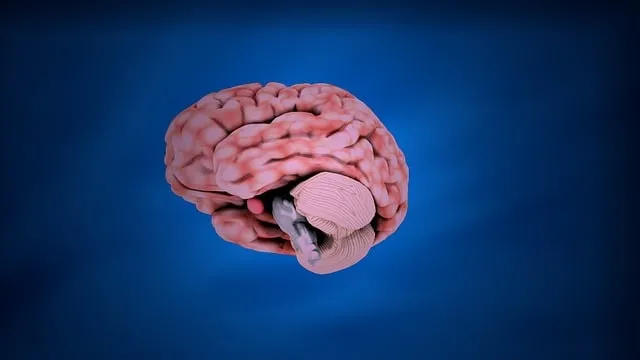Boulder Kaiser Permanente is committed to improving mental health diagnosis accuracy by implementing a multi-faceted approach. This includes the Community Outreach Program, educational resources, and integrating emotional well-being promotion techniques into routine care to reduce stigma. Mental health professionals refine assessment methods using cutting-edge tools and compassionate care training, focusing on complex or trauma-related cases. A patient-centered approach emphasizes open communication and personalized treatment plans, empowering individuals in their healing journey. Technology integration through AI-driven tools, virtual reality therapy, and digital resources streamlines evaluations, improves diagnosis accuracy, and promotes emotional well-being. Continuous quality improvement through audits and feedback loops ensures optimal mental health service delivery, enhancing patient outcomes and overall mental wellness.
Mental illness diagnosis accuracy is a critical aspect of healthcare, and efforts to improve it are gaining momentum. This article explores various strategies employed by Boulder Kaiser Permanente in enhancing mental health diagnoses. We delve into understanding the challenges of misdiagnosis rates within their facility, highlighting the need for advanced assessment techniques. Through enhanced training and patient-centered approaches, professionals are better equipped to support individuals seeking help. Additionally, we examine the role of technology and continuous quality improvement processes in ensuring accurate diagnosis and personalized treatment planning at Boulder Kaiser Permanente’s mental health services.
- Understanding the Challenges: Uncovering Misdiagnosis Rates at Boulder Kaiser Permanente
- Enhancing Assessment Techniques: Tools and Training for Mental Health Professionals
- Patient-Centered Approach: Improving Communication and Collaboration
- Integrating Technology: Digital Solutions for Accurate Diagnosis and Treatment Planning
- Continuous Quality Improvement: Regular Audits and Feedback Loops
Understanding the Challenges: Uncovering Misdiagnosis Rates at Boulder Kaiser Permanente

At Boulder Kaiser Permanente, understanding the challenges surrounding mental health diagnosis accuracy is a critical step in improving patient care. Studies show that misdiagnosis rates for mental illnesses are alarmingly high, with some conditions often overlooked or wrongly identified. This issue is particularly concerning given the complex nature of mental health disorders and the impact of accurate diagnosis on treatment outcomes. By examining the specific challenges faced within their healthcare system, Boulder Kaiser Permanente can identify areas for improvement.
One notable initiative that highlights their commitment to this cause is the Community Outreach Program Implementation. Through this program, they actively engage with local communities to promote Mental Health Awareness and provide educational resources. Additionally, Emotional Well-being Promotion Techniques are being integrated into routine healthcare practices, encouraging open conversations about mental health and reducing the stigma associated with seeking help. These efforts collectively contribute to a more comprehensive understanding of mental illness, leading to improved diagnosis accuracy.
Enhancing Assessment Techniques: Tools and Training for Mental Health Professionals

Mental health professionals in Boulder, guided by organizations like Kaiser Permanente, are constantly striving to enhance assessment techniques for accurate mental illness diagnoses. This involves integrating cutting-edge tools and innovative training programs that prioritize both technical proficiency and compassionate care. The goal is to create a more nuanced understanding of patients’ psychological states, especially when dealing with complex cases or those experiencing trauma.
One such initiative is the incorporation of Compassion Cultivation Practices, which foster empathetic connection between healthcare providers and their patients. Additionally, Crisis Intervention Guidance and Trauma Support Services play pivotal roles in equipping professionals with strategies to navigate challenging situations effectively, ensuring that individuals receive timely and precise care tailored to their unique needs.
Patient-Centered Approach: Improving Communication and Collaboration

At Boulder Kaiser Permanente mental health services, a shift towards a patient-centered approach is revolutionizing care. This involves deeply listening to patients’ unique experiences and perspectives, fostering open communication channels, and collaboratively developing personalized treatment plans. By prioritizing patient voices and preferences, healthcare providers can create a safe and supportive environment that encourages honest sharing of symptoms, concerns, and aspirations.
This collaborative model goes beyond traditional diagnosis. It incorporates self-awareness exercises, conflict resolution techniques, and coping skills development tailored to each individual’s needs. Such personalized interventions not only enhance understanding of mental health conditions but also empower patients with tools to actively participate in their healing journey, fostering a deeper sense of ownership and well-being.
Integrating Technology: Digital Solutions for Accurate Diagnosis and Treatment Planning

Integrating technology offers a promising path toward enhancing mental illness diagnosis accuracy at institutions like Boulder Kaiser Permanente. Digital solutions, ranging from AI-driven diagnostic tools to virtual reality therapy platforms, are transforming the way mental health professionals assess and treat patients. These innovations not only streamline the evaluation process but also provide more personalized treatment plans tailored to individual needs. For instance, AI algorithms can analyze patient data, including speech patterns and language usage, to detect subtleties that might be missed through traditional methods.
Furthermore, technology plays a pivotal role in promoting emotional well-being, self-esteem improvement, and the development of a robust self-care routine for better mental health. Digital platforms offer accessible resources, such as guided meditations, mood tracking apps, and online therapy sessions, empowering individuals to take proactive steps toward managing their mental well-being. By leveraging technology, Boulder Kaiser Permanente can ensure that patients receive timely, accurate diagnoses and access evidence-based treatments, ultimately leading to improved outcomes and enhanced quality of life.
Continuous Quality Improvement: Regular Audits and Feedback Loops

At Boulder Kaiser Permanente mental health services, continuous quality improvement is a cornerstone of their approach. This involves regular audits and feedback loops that meticulously assess every aspect of care delivery. By regularly reviewing patient outcomes, treatment plans, and staff performance, they identify areas for enhancement and implement data-driven solutions.
This proactive strategy leverages the power of ongoing evaluation to foster resilience building among patients and enhance mental wellness. Through this process, healthcare providers receive valuable insights from both patients and peers, guiding them in refining their practices. This, in turn, ensures that services are not only accurate but also effective, contributing to improved anxiety relief and overall mental health outcomes for all individuals served.
In conclusion, improving mental illness diagnosis accuracy at Boulder Kaiser Permanente involves a multi-faceted approach. By understanding challenges like misdiagnosis rates, enhancing assessment techniques with advanced tools and training, adopting patient-centered communication strategies, integrating digital solutions for efficient diagnosis, and implementing continuous quality improvement through regular audits and feedback loops, we can significantly improve mental health care. These efforts not only benefit individuals seeking treatment at Boulder Kaiser Permanente but also contribute to the broader landscape of mental health services, ensuring more accurate diagnoses and better outcomes for all patients.






